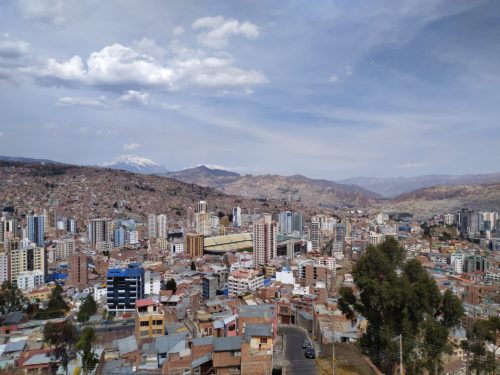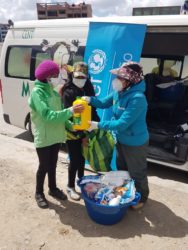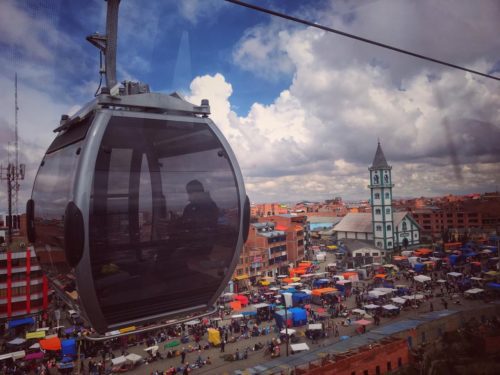Sara, EU Aid Volunteers en Bolivie
In July 2019, I was deployed to La Paz – Bolivia as a senior EU volunteer for the Fundacion Munasim Kullakita (FMK). 14 months after my return to Italy, and I can now take stock of what this year has brought and meant to me. Although this year has been very unusual – first because of the social and political conflicts taking place in the country, and then because of the COVID-19 pandemics – I can say that the overall experience has been very positive and enriching.
The Fundación Munasim Kullakita (FMK) is a Bolivian NGO based in El Alto. Since 2008, the association has been committed to preventing, eradicating, and minimising the effects of child sexual exploitation, using an innovative approach that involves the community in all its phases. In addition to working with victims of sexual exploitation and trafficking, the FMK also works with people living on the streets and, more recently, with Venezuelan migrants and asylum seekers fleeing the economic and social crisis in their country.

In terms of fieldwork, throughout the year I had the opportunity to work in two shelters, which take in children, adolescents, and young women who are victims of sexual exploitation and trafficking and support them and their families throughout a rehabilitation process. I have also contributed to identifying and working with Venezuelan migrants and asylum seekers arriving in Bolivia after turbulent journeys on regular and irregular migration routes. These two experiences were enriching and allowed me to see many different realities at close quarters. Unfortunately, my activities in the field were interrupted by two main contingencies that forced the whole association to rethink strategies and the best approaches to continue working with the population, and therefore I also had to adapt to new tasks and working methods, but as I like to think every cloud has a silver lining.
In October, following the presidential elections, a wave of protests and conflicts erupted throughout the country, making it dangerous to walk the streets until December. This had a huge impact on the lives of Bolivians: some people lost their loved ones in violent clashes, the economy stagnated, the social context became very tense and the country showed how deeply divided it was despite years of political interventions aimed at generating inclusion and overcoming the cultural and economic divide. The Fundación Munasim Kullakita, with the support of UNICEF Bolivia, saw the opportunity to try to generate social cohesion by proposing a humanitarian intervention aimed at building a culture of peace throughout the country. In this context, I had the chance to coordinate the intervention and work with local staff in the areas most affected by social conflict until March.

Although this volunteering experience was marked by difficult periods linked to the health situation, it was above all rich in lessons and discoveries, both on a professional and personal level. The need for international solidarity is as great as ever and I hope that more and more volunteers will experience a journey as enriching and inspiring as this one.
Et si c'était toi ?
Rendez-vous en réunion d'information !
Tous les mecredis à 11h en ligne

